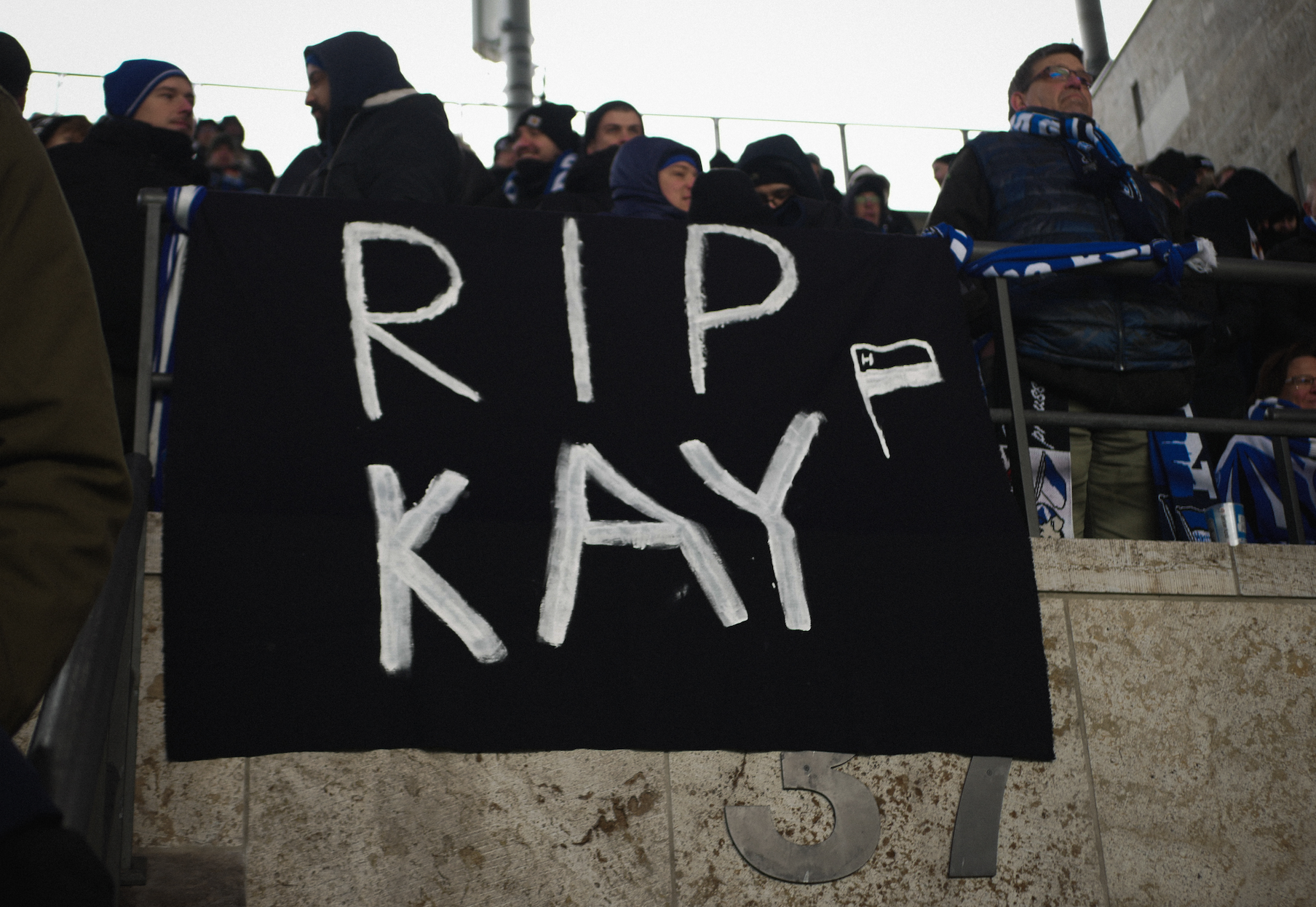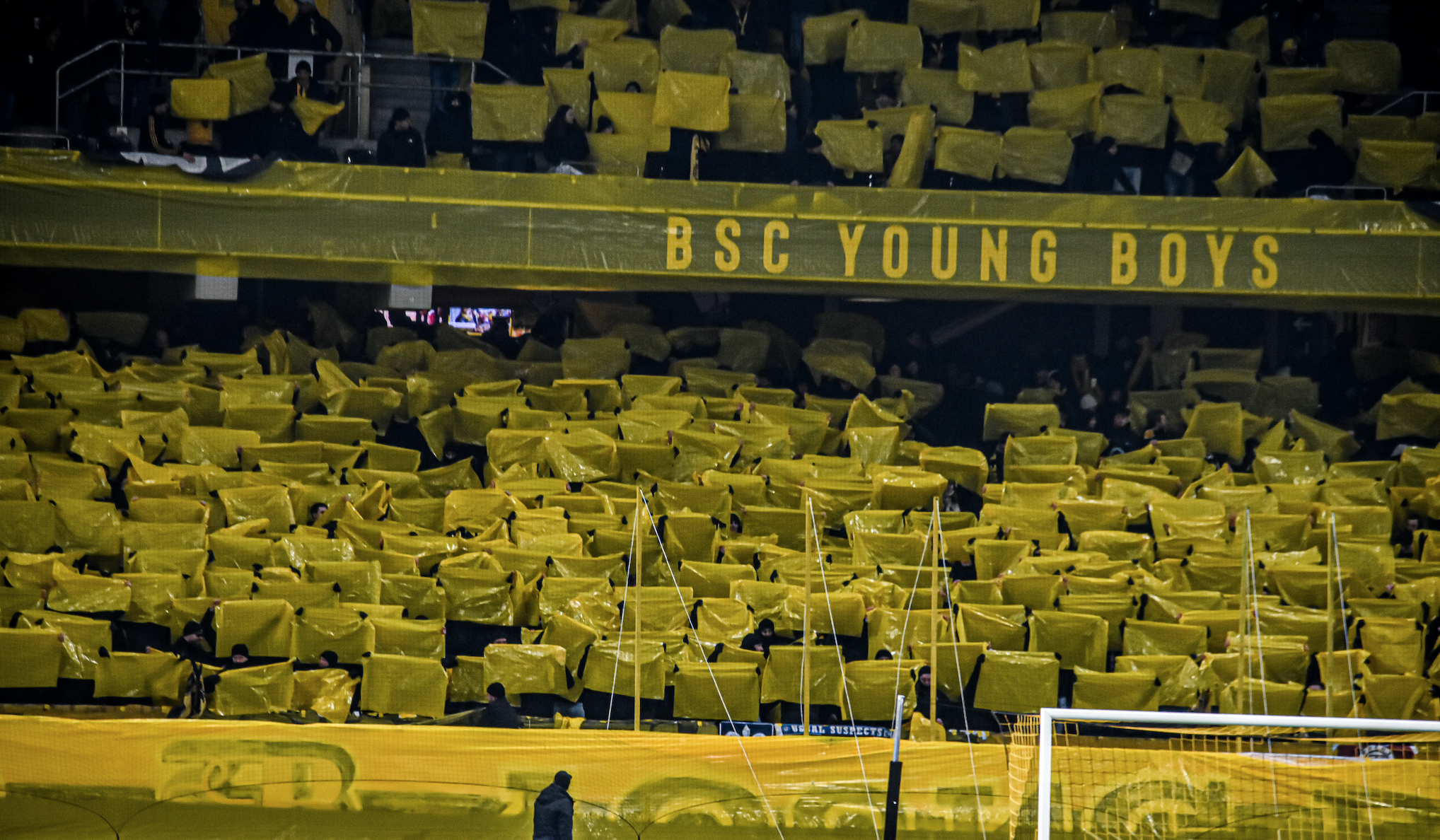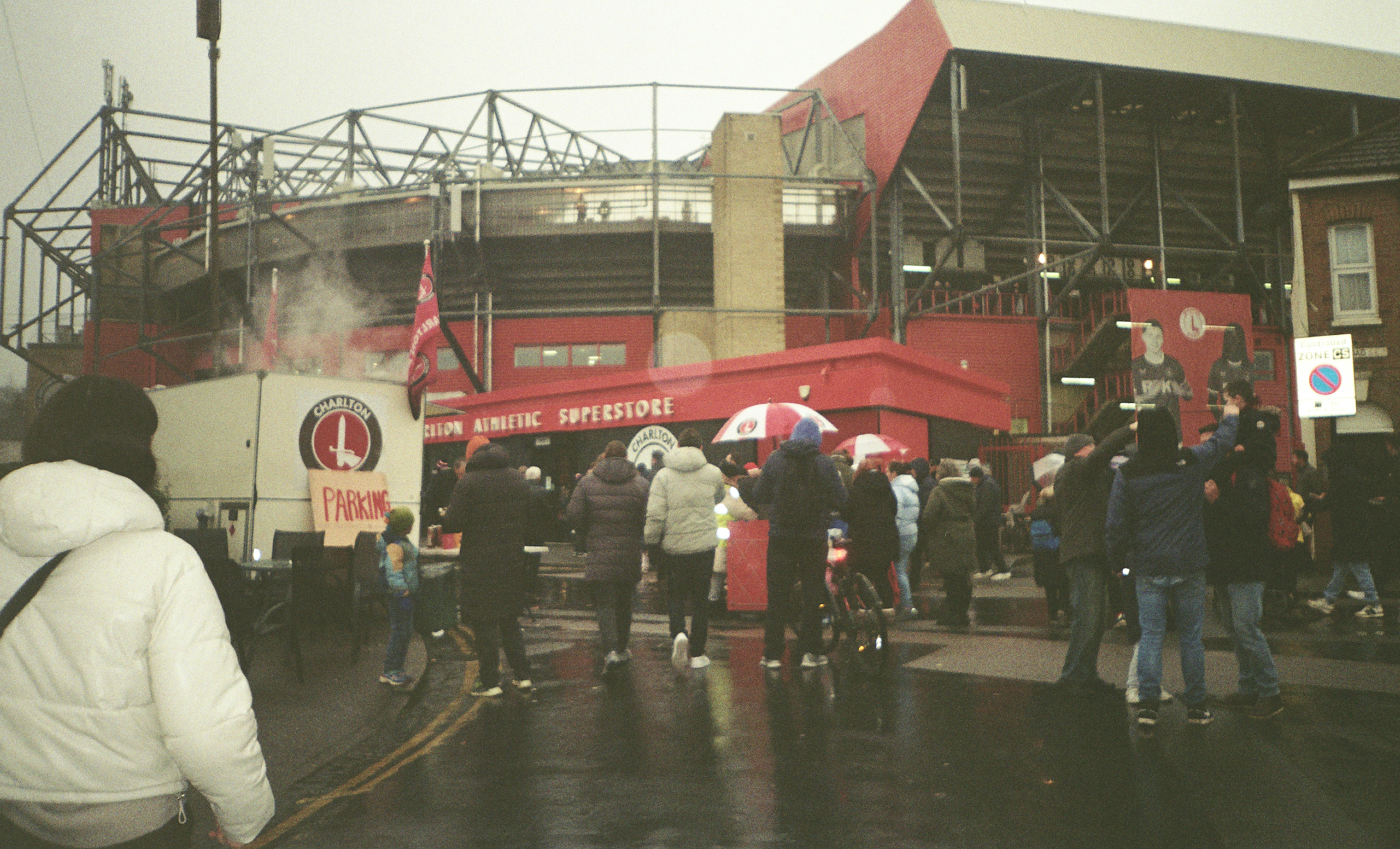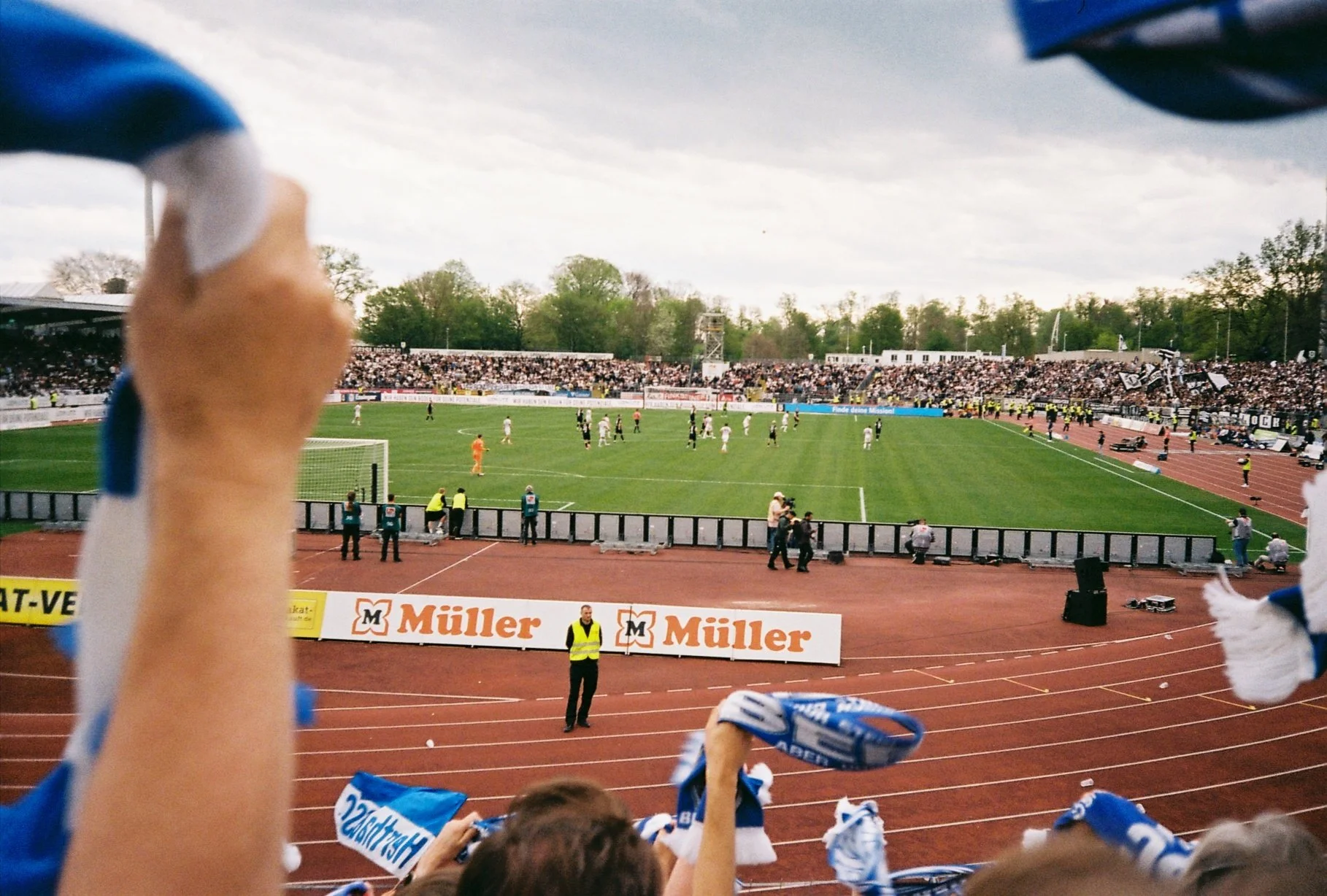Hertha BSC: Resilience
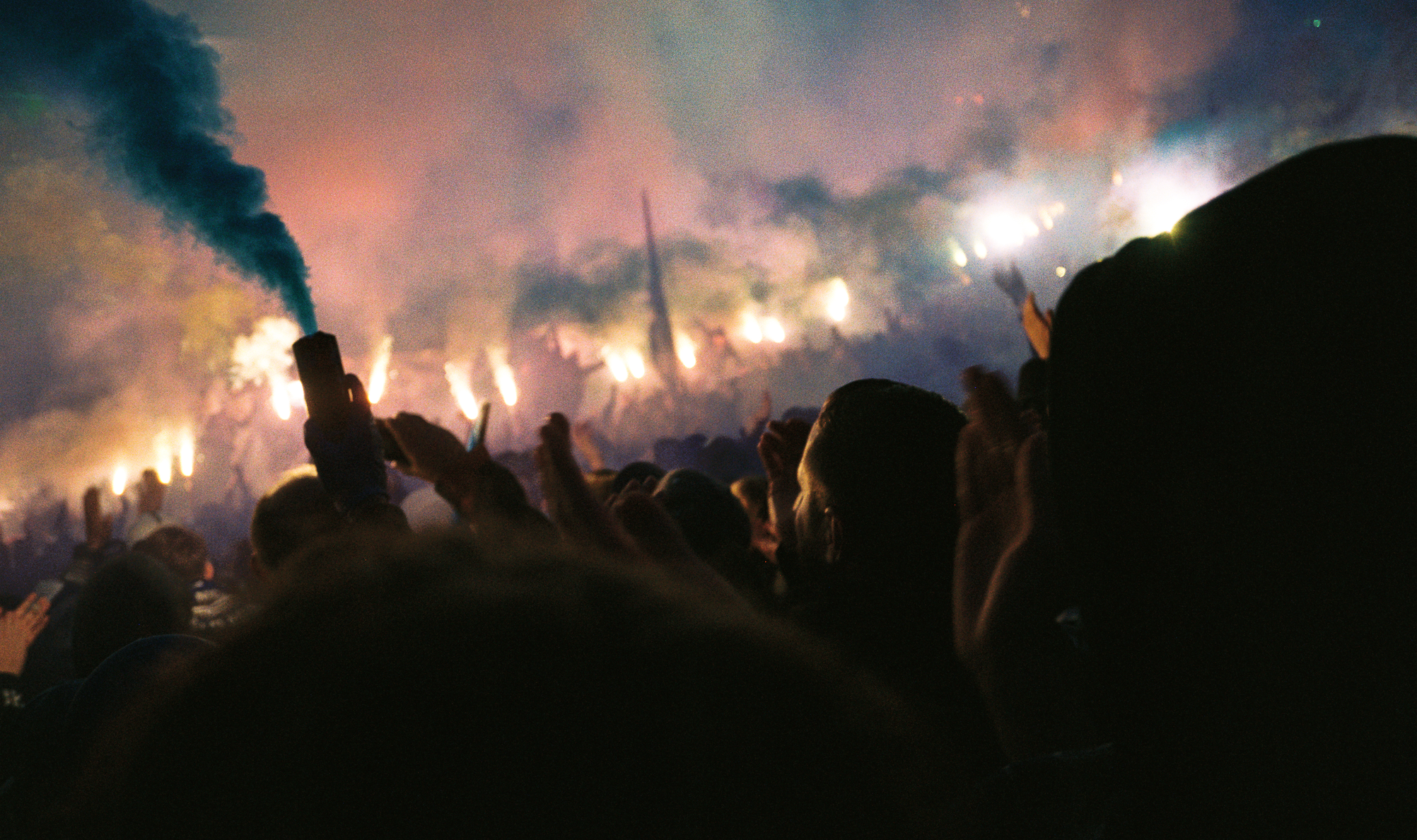
Words: Simeon Radig
Images: Simeon Radig
The rise, fall and rebirth of Hertha BSC: A story of resilience, as If Shakespeare had sought a football club for one of his dramas.
The Berlin club, founded in 1892, experienced a dramatic craving for success, downfall, and redemption.
Here is the story of how Hertha burned €374 million, got relegated, but ultimately reinforced the connection between the club and its fans.
It’s 2019, and Hertha’s coach and legend, Pal Dardai, parted ways with the club after finishing only 11th in the Bundesliga.
The club’s leadership made a big promise for the following season, vowing to turn Hertha into the “Big City Club” that Berlin deserves, after disgracefully failing for years and ending up in mediocrity.
©Simeon Radig/ Terrace Edition. Hertha BSC.
The “wannabe saviour” enabling this promised success was Lars Windhorst, a businessman with a turbulent financial history.
Despite this, he invested millions. Thankfully, Germany’s 50+1 rule limited Windhorst’s control over the club, ensuring the fans and members retained the majority of voting rights.
Over the next two years, Hertha spent a tremendous amount of money on expensive players and brought in high-profile names, like Jürgen Klinsmann and Jens Lehmann, to the management floor.
However, the real downfall began: Hertha couldn’t deliver results, the management was estranged, and the investor tried to take more control.
From the 2020/21 season onward, Hertha was constantly fighting relegation as internal conflicts escalated. By April 2022, tensions peaked when the team lost the derby against Union Berlin, and ultras forced Hertha players to remove their jerseys, accusing them of being mercenaries.
©Simeon Radig/ Terrace Edition/ Hertha BSC ink.
At this point, the rift between fans and the club couldn’t have been deeper. Despite narrowly avoiding relegation that year, the relationship between fans, the club, and the team was shattered.
And yet, a new hope emerged. Before the start of the 2022/23 season, Hertha underwent a leadership overhaul. Former ultra capo Kay Bernstein was elected president during the summer break, while new managing and sporting directors were appointed in the winter after the club fought relegation yet again.
The leadership of Bernstein, Herrich and Weber marked a turning point.
Still, the fate was inevitable. At the end of the 2022/23 season, Hertha was directly relegated to the 2. Bundesliga for the first time since 2012.
The final balance of the chaotic years from 2019 to 2023 was grim: €374 million was seemingly wasted, eight different coaches, instability in management, and most importantly, a deep separation between fans, the club, and the team.
©Simeon Radig/ Terrace Edition. Hertha BSC kutte.
It was time for a complete financial and structural rebuild, led by Kay Bernstein. The president finally pushed out Windhorst and introduced the “Berlin Way,” a philosophy to promote local talent and strengthen connections with fans, the city, and the community.
Hertha’s youth academy, known to be one of Germany’s best, became the cornerstone of this philosophy. The team’s focus shifted primarily to academy players and coaches, embracing a deeply rooted Berlin identity.
The “Berlin Way” aimed for economic, ecological, and social recovery and sustainability. Nonetheless, reality hit the club hard soon, as financial problems persisted: The shares of Lars Windhorst’s investment had to be sold to 777 Partners, the well known investment group owning other clubs such as Sevilla FC and Genoa, in order to secure the license for the next season.
Despite relegation to the 2. Bundesliga in 2023, the connection between fans and the club finally felt genuine again. Kay Bernstein’s “Berlin Way”credibly strengthened the feeling of community, including everyone and every opinion.
Even the team’s performance in the 2. Bundesliga was promising. A young Berlin squad, coached by club legend Pal Dardai, fought with passion, reigniting emotions missing for years.
It seemed too good to be true.
©Simeon Radig/ Terrace Edition. Kay Bernstein memorial.
In January 2024, tragedy struck Hertha BSC: Kay Bernstein unexpectedly passed away. His death sent shockwaves through Berlin and the football world. The days following his passing were brutal for family, friends, the club, and the entire city.
The first match after his death, against Fortuna Düsseldorf, was a sombre affair. The entire stadium grieved, with fans, players, and staff united in tears.
A cold wind whipped through the grey Olympiastadion as Berlin paid its last respects to Bernstein.
In the end his leadership and vision are remembered as the soul of the Berlin Way and a symbol of hope for Hertha’s future.
Bernstein’s legacy intensely reinforced the bonding and solidarity within the club and with the fans making the Berlin Way immortal.
©Simeon Radig/ Terrace Edition. Kay Bernstein memorial.
Although Hertha finished the 2023/24 season in ninth place in the 2. Bundesliga and currently only 12th, with no promotion to the Bundesliga in sight, there remains hope for the future.
Hertha’s chaotic years highlighted the dangers of prioritizing ambition and money over identity and stability.
The club burned through €374 million, cycled through eight coaches, and nearly lost its soul.
Yet under Bernstein’s leadership, Hertha recovered its heart. The numbers of membership for Hertha BSC are peaking and the Berlin Way reinforced the values of unity, identity, and emotion, proving that football isn’t about the rich and opportunistic businessmen.
It’s about the fans, the sense of belonging, and the community.
As Hertha’s future in the second division remains uncertain, the lessons learned show that success isn’t only about trophies or money but about the strength of the bond between a club and its supporters.
©Simeon Radig/ Terrace Edition. Hertha BSC Ostkurve.
©Simeon Radig/ Terrace Edition. Hertha BSC.
©Simeon Radig/ Terrace Edition. Hertha BSC.
©Simeon Radig/ Terrace Edition. Kay Bernstein memorial.
You can find Simeon on Insatagram: @simeonsarchiv
Hertha are on Instagram: @HerthaBSC











